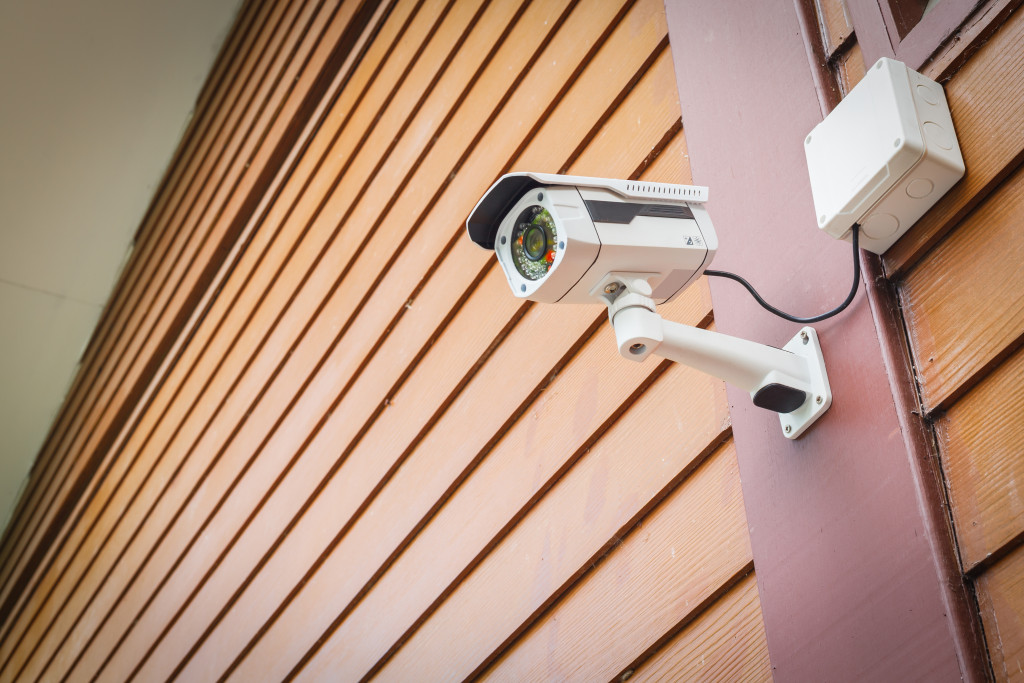Privacy is an essential factor for homeowners to consider when seeking a safe and comfortable home. Whether it’s secluded areas to retreat in, screening from neighbors, or shielding from prying eyes, privacy can affect how secure and content one feels in their own home. Privacy has become even more essential in today’s connected world with improved technology and digital surveillance.
The importance of privacy can be seen in data gathered by the National Center for Victims of Crime, which reported that 87 percent of surveyed victims felt safer when their abuser could not find them. Furthermore, 83 percent of respondents indicated that having control over who knows where they live was critical to their safety. This demonstrates the need for homeowners to control the information they share about themselves and thus make their home environment more secure and private.
Additionally, recent research suggests that increased levels of privacy may improve overall well-being by promoting a sense of freedom and relaxation among homeowners within the four walls of their residences. A study conducted by Deloitte found that those who rated their level of privacy as high had higher levels of life satisfaction than those ranking it lower — with 86% indicating that protecting personal space makes them feel safer compared to only 42% who reported feeling happier in open environments with unrestricted access to visitors. This further reinforces how having adequate levels of privacy in one’s home environment can help improve mental health outcomes and provide physical safety benefits against external threats.
However, you might need help to achieve the desired privacy levels. Here are a few features to get for your goal.
Home Security System
A home security system is an excellent way to make your home more private – it can help protect your family and belongings from intruders and keep out unwanted visitors. Home security systems give homeowners the peace of mind that their property is well protected. They can monitor the perimeter of a home for suspicious activity and alert authorities if any unauthorized persons are detected. Security systems also provide access control so only those with permission can enter a dwelling. Additionally, many home security systems now come with cameras that allow homeowners to monitor their living space from anywhere in the world via a mobile app or computer.
The features of modern home security systems have made them invaluable tools for increasing privacy at home. Through motion sensors and digital door locks, authorized users can access certain areas of the house while others remain locked or off-limits. Homeowners can set up customized settings, such as specific time limits or codes that must be entered to gain entry into certain rooms inside their homes. This helps create a secure environment where only people with permission can enter, thus providing increased privacy and safety inside the residence. Motion sensors can also detect motion within the property and alert owners if someone is on the premises without authorization.
The home security system even prevents passersby from looking at the property once they’ve left it. Security cameras can be set up outside the home, allowing homeowners to monitor the area around their residence even when they’re away from home. Furthermore, these security cameras are often equipped with night vision capabilities that allow owners to monitor their property even in low-light conditions.
Privacy Fencing

Fencing is a great way to increase privacy in your backyard and shield yourself from prying eyes. Many types of fencing are available, such as wood, vinyl, aluminum, and chain link fences. Each type has its advantages and disadvantages, but the most important thing is choosing one that best meets your needs for both durability and privacy.
Wooden fencing provides excellent insulation from sound and can be a great way to block out any noise from neighbors or passersby. Additionally, it is often a more aesthetically pleasing option than other materials. Vinyl fencing has the same advantages but is also very resilient and can withstand harsh weather conditions. Aluminum fencing offers maximum security as it is tough to break through, while chain link fences provide good visibility, giving homeowners an unobstructed view of their property.
No matter what type of fence you choose, make sure it meets local height and design regulations. Privacy fencing should be high enough to effectively shield your home from anyone walking by on the street but low enough not to appear threatening or intimidating.
Window Treatments
The windows are the eyes of your home, and how you dress them up can make a massive difference in terms of privacy. Window treatments are essential in keeping your home private as they protect from prying outside eyes.
Some popular window treatments include blinds, shades, and curtains. Blinds offer excellent coverage and control over sunlight because they can be adjusted to block out most light or opened for natural illumination. Shades also come in different styles and materials that can block out more light than blinds while maintaining a pleasant aesthetic appearance. Curtains add a softer touch to windows and provide superior insulation against sound compared to other treatments.
Window tints can also be used to provide privacy when needed. They come in various colors and shades, letting homeowners customize the light allowed into the home. However, you might need window tint repair when the tint begins to wear off or crack.
Final Thoughts
Privacy is invaluable for homeowners looking for a secure and comfortable living environment. Installing security systems, privacy fencing, and window treatments can help homeowners achieve greater levels of safety and protection while improving their mental health outcomes. In today’s connected world, ensuring one’s living space is protected from external threats, and digital surveillance has never been more critical than creating a safe and secure shelter.







